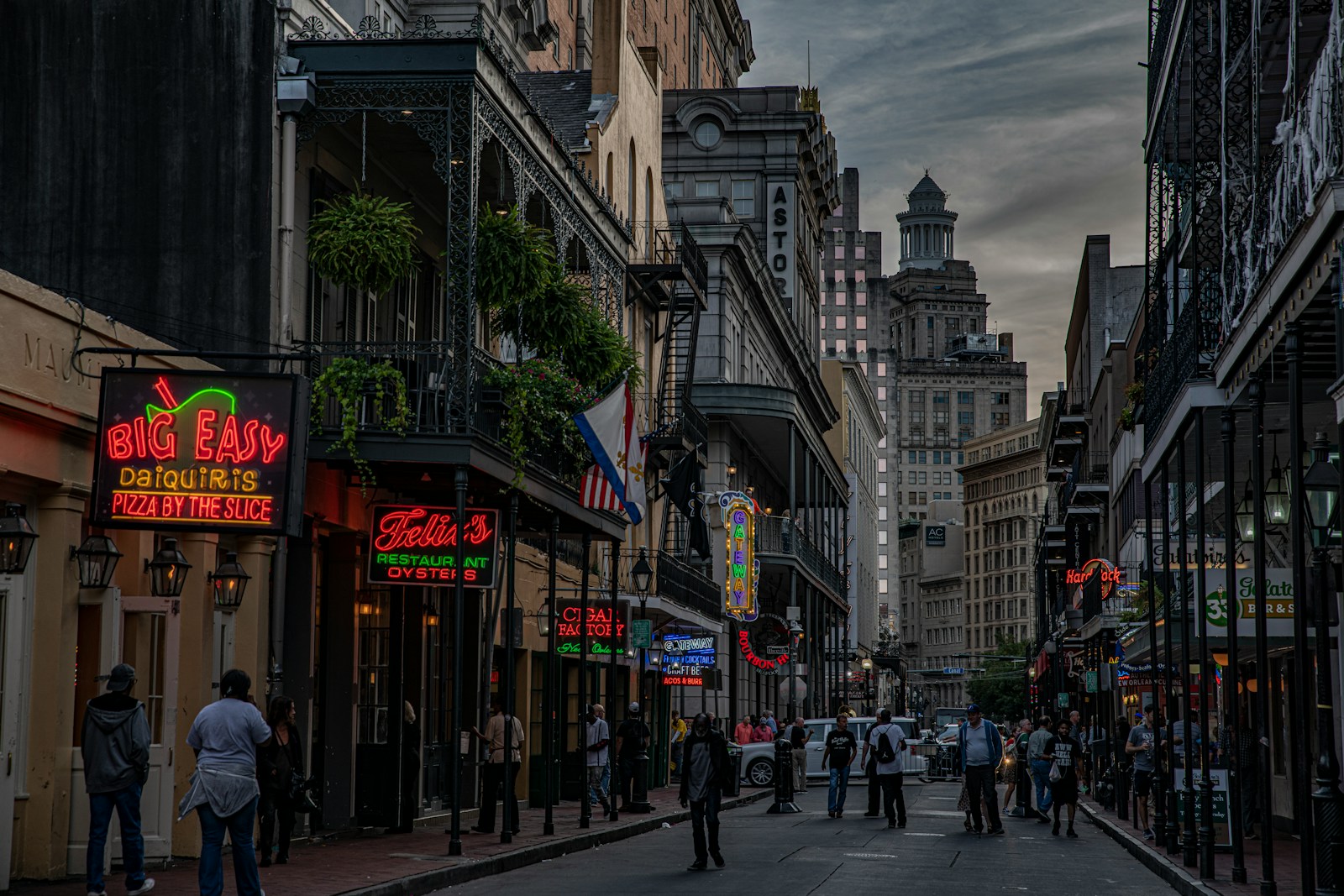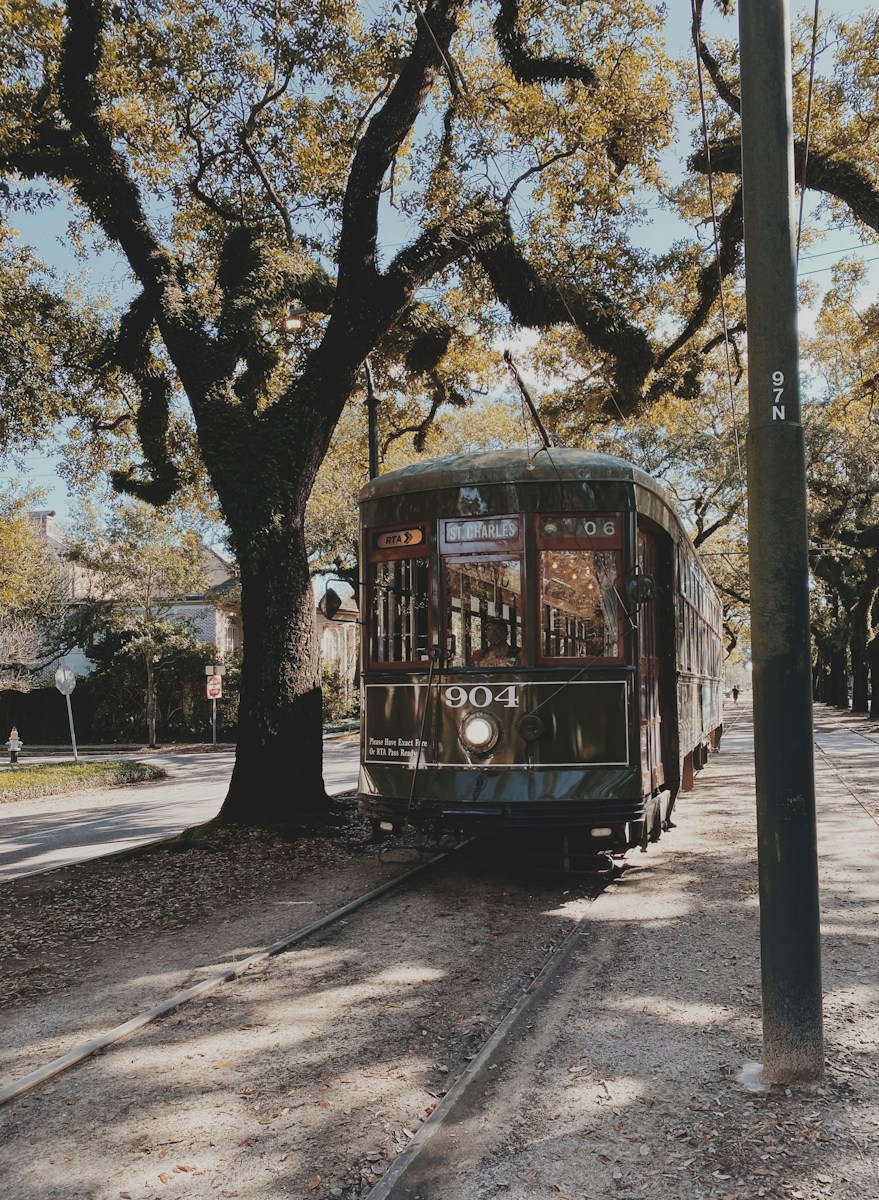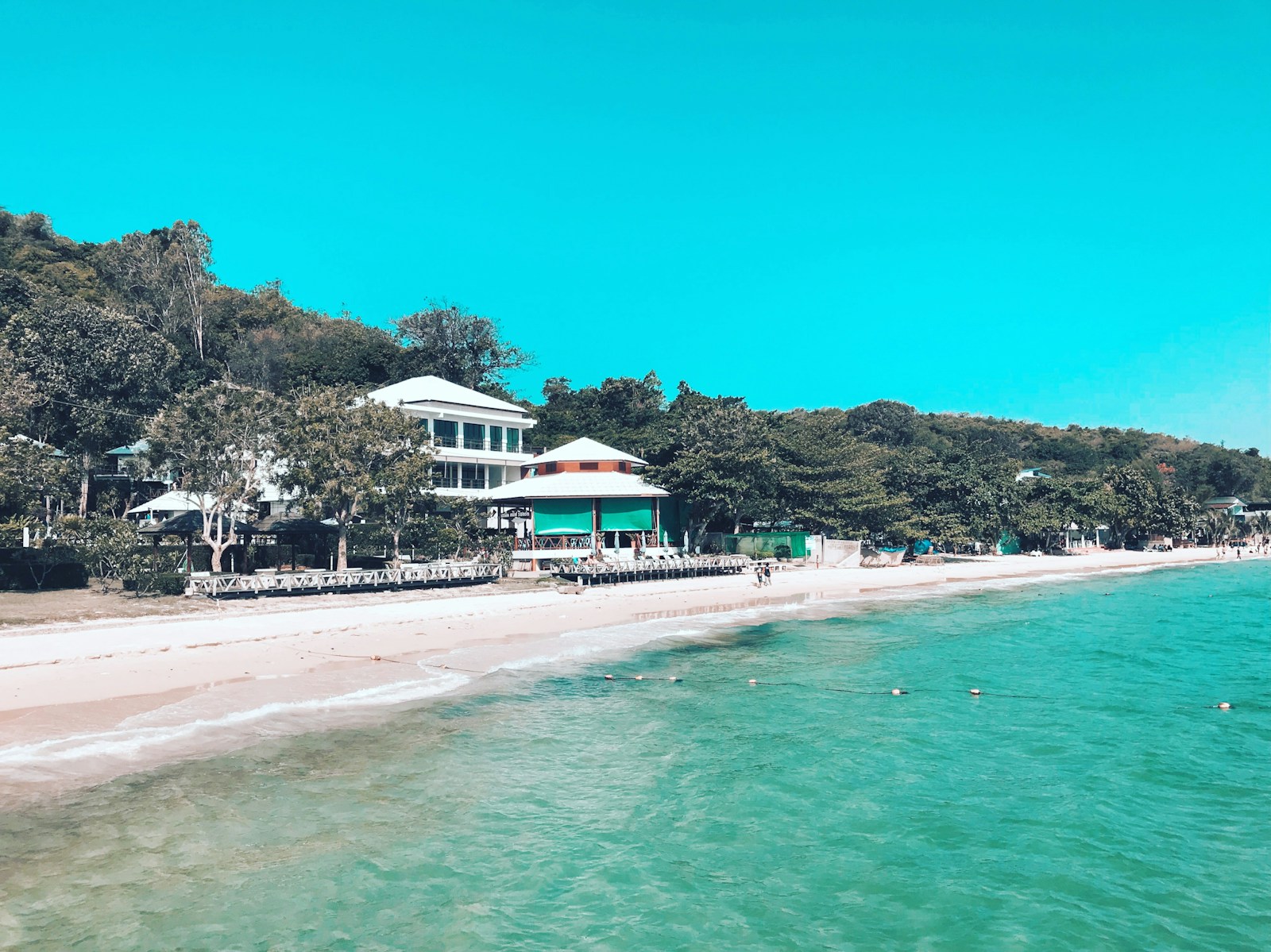You’re probably wondering, “Is New Orleans safe to visit?” It’s a question on many travelers’ minds, especially those who’ve heard about the city’s vibrant culture but also its reputation for crime.
Well, let’s dive into this topic. Like any major city, New Orleans has its safe spots and its not-so-safe areas. But don’t let that deter you. With a little know-how, you can navigate the city confidently and securely.
We’ll explore what safety in New Orleans really looks like, from tourist hotspots to local hangouts. So, buckle up, and let’s embark on this journey together.
Is New Orleans Safe for Travelers?

When planning a trip, there’s no ignoring the subject of safety. Considering the city’s reputation, the question “Is New Orleans Safe for Travelers?” might have crossed your mind. Allow me to shed some light on this.
Crime Rates and Statistics in New Orleans
While it’s crucial to keep a realistic perspective about the risks, understand that crime statistics can paint an unflattering image of any city. New Orleans is no exception.
To give you an understanding, crime rates in New Orleans are higher than the national average. However, these crimes are typically non-violent and often involve property crime. Tourists, especially in popular areas, are seldom targeted.
| Crime Type | New Orleans Rates Per 1,000 | National Average Per 1,000 |
|---|---|---|
| Property | 46.2 | 20.4 |
| Violent | 12.1 | 4.0 |
You’re probably worrying now, but keep in mind, nearly every popular tourist destination in the world experiences some level of crime.
Local Laws and Regulations to Consider
Being aware of local laws and regulations is an effective way of ensuring your safety while traveling. Intricacies like open-container laws, public intoxication controls, and restrictions on certain types of entertainment can be crucial.
In New Orleans, enjoying your cocktail on the go is legal, as open containers are allowed in the majority of the public space within the French Quarter. You should also be aware that there is no “last call” in New Orleans, meaning bars can stay open 24 hours.
When it comes to entertainment, remember New Orleans has a robust artistic culture. Participating in unlicensed public performances, however, could land you in trouble. Always check the local regulations if you ever feel the urge to break out your saxophone on Bourbon Street!
So yes, every journey involves some degree of risk. But armed with a sensible mindset, mindfulness of your surroundings, and respect for local practices, your experience in New Orleans can be a secure and memorable one.
Is New Orleans Safe for Families?

When planning a trip for the whole family, safety must be a top priority. Naturally, one of the burning questions you might have is, “Is New Orleans safe for families?” The truth is, just like any other city in the world, the safety of your family’s trip to New Orleans largely depends on being prepared, staying informed, and making sound judgments.
Before deciding to explore places like the legendary French Quarter or the enchanting Garden District with your family, take the time to research. Consider the sort of activities you’re interested in and the places you’d like to visit. Be sure to also check out others’ experiences. If you’re planning to explore popular attractions like Audubon Zoo, City Park, or the Children’s Museum of New Orleans, you’ll find they’re touted to be quite family-friendly.
While it’s true that crime rates in New Orleans are higher than the national average, the majority of these crimes take place in certain areas and are often non-violative. According to the New Orleans Police Department, the most commonly reported crimes include property crimes like theft or burglary. Keep in mind that numerous neighborhoods and popular tourist spots in the city are safe, bustling areas.
To foster a safe and enjoyable environment for yourself and your family, stay informed about local laws and practices. For instance, New Orleans has famous open-container laws that allow adults to consume alcohol in public places, provided it’s in a plastic container.
Comparatively, below is a brief overview of the crime rates across the USA and New Orleans:
| Violent Crime Rate (per 1,000 residents) | Property Crime Rate (per 1,000 residents) | |
|---|---|---|
| USA | 3.7 | 22 |
| NOLA | 11.7 | 45 |
Keep in mind, high stats don’t necessarily mean every neighborhood is dangerous. In essence, adhering to basic safety measures and planning your trip wisely can ensure a safe, enjoyable, and unforgettable experience for your family in New Orleans. Always remember, staying vigilant and respectful to local practices can go a long way in securing a pleasant journey, wherever the destination may be.
Safety Landscape in New Orleans
New Orleans is a city that’s home to a mix of vibrant culture, unique traditions, and a variety of neighborhoods each carrying its distinct character. However, when it comes to safety, not all areas are equal. This section will delve deeper into understanding the safety scenario in New Orleans and help navigate your experience better.
Dangerous Neighborhoods to Avoid in New Orleans
Like any city, New Orleans has pockets where crime rates are higher. Central City is one neighborhood to approach with caution. Known for its high crime rate, it’s advised to not wander into this part of the town, especially after dark. New Orleans East is another area that hasn’t been able to curb its crime rates effectively, making it a less ideal place for family outings.
Moreover, fewer tourist attractions and generally more run-down infrastructure make these areas less appealing for visitors. However, this doesn’t mean you cannot experience the essence of New Orleans; there are several safe zones where you can soak in the city’s charm without worrying about your safety.
Safest Places in New Orleans to Visit
The fun doesn’t always have to come alongside unnecessary risk. And the city of New Orleans offers plenty of safe spaces for family tours and solo travels. The French Quarter is one of the city’s safest and most popular tourist destinations. Famed for its historic buildings, bustling eateries, and lively nightlife, you’ll find police patrolling the area regularly, ensuring a relatively secure environment.
Garden District is another haven for visitors with its well-preserved antebellum mansions and scenic St. Charles Avenue tram line. For peace-loving travelers, Uptown and Carrollton are fantastic choices providing a quiet, family-friendly atmosphere.
Each neighborhood in New Orleans has something unique to offer. From the vibrant street life in the French Quarter to the peaceful, old-world charm of the Garden District, there’s a place for everyone’s taste and safety preferences in the Big Easy. While it’s always important to stay alert and informed, knowing where to tread can make all the difference in your New Orleans experience. Just remember, use your common sense much like you would in any other city worldwide.
Emergency Services and Support in New Orleans
To ensure a safe and enjoyable experience when visiting New Orleans, it’s vital to be aware of the emergency services and supports that are available. Armed with this knowledge, you can confidently navigate the city and experience all that it has to offer.
Healthcare Facilities in New Orleans
New Orleans houses several top-notch hospitals and healthcare facilities that are equipped with the latest technology to handle any medical emergency that might arise. The city is home to the Ochsner Medical Center and the Tulane Medical Center. They are located within the city limits which makes them highly accessible.
Availability of Police and Medical Services
The city boasts a responsive police department that works round the clock to ensure the safety of both residents and visitors. Additionally, New Orleans also offers swift medical services in case of emergencies. The city’s ambulance service is highly efficient and responds quickly to calls. Bear in mind that in times of urgent need, it’s vital to approach these agencies promptly.
List of Emergency Phone Numbers in New Orleans
Always keep a handy list of emergency contact numbers. Here are some must-haves:
- Police, Fire, Medical: 911
- Non-Emergency Police: 504-821-2222
- Coast Guard: 504-589-6225
- Poison Control: 800-222-1222
How to Access Consular Assistance
In case you’re a foreign visitor who lands in dire straits, remember that your country’s consular services are there to help. They can assist with lost passports, provide information on local laws and services, and help during medical or legal emergencies. The contact information for the consular service of your homeland should always be in your saved contacts.
In all, being prepared is the key for enjoying what New Orleans has to offer, without worrying about the ‘what ifs’. Arm yourself with the knowledge about available services and keep ready the contact details of emergency services.
Safety Tips for Nightlife
New Orleans, celebrated for its vibrant nightlife, offers an array of world-renowned jazz clubs, sophisticated cocktail lounges, and friendly neighborhood bars. But, enjoying the city’s night scene requires you to take some safety precautions too. Following these key tips might save your night from turning sour, ensuring you have a memorable experience.
First of all, stay in well-populated and well-lit areas such as the historic French Quarter and the Warehouse District. These locations are among the safest in the city during night hours and are often patrolled by local police.
Casual comfort is the dress code for New Orleans. Blend in with the local crowd and refrain from displaying expensive jewelry or electronics in public. Keep a close eye on your belongings and never leave your drink unattended. It’s easy to get caught up in the magic of the night but beware of potential pickpockets.
The city’s open-container laws allow you to carry alcoholic beverages from one venue to another. However, it’s still essential to drink responsibly. Alcohol impairs your judgment and coordination, which can make you a target for opportunistic criminals.
Rely on licensed transport like cabs or ride-share services for getting around. They’re safe, reputable, and familiar with the city’s street network. It’s preferable to walk in unfamiliar areas, especially late at night. Don’t forget to share your travel location with a trusted contact while going back to your hotel or accommodation.
Lastly, always stay alert and informed. Consider subscribing to local news and emergency notifications. These will keep you abreast of any disturbances or potential threats in your vicinity.
Emergency numbers to remember while you visit New Orleans:
| Service | Phone Number |
|---|---|
| Police, Fire, and Medical | 911 |
| Non-Emergency Police | (504) 821-2222 |
| Consular Assistance | Check with your respective embassy |
Nightlife in New Orleans can be exciting and full of surprises, with just the right amount of precautions. Ensuring personal safety in this magical city doesn’t mean you can’t have fun – it simply means you’re being smart about it.
Safety Tips for Public Transportation
While visiting New Orleans, public transportation might be your go-to option for exploring the city. Making your way through the city using buses, trams, and even riverboats, offers an encounter with the city’s unique nature and culture. However, it’s essential to bear in mind specific safety guidelines to ensure a stress-free and secure journey.
Use Reputable Services: While riding on public transit, ensure you’re using well-known and trusted services. The New Orleans Regional Transit Authority (RTA) operates bus, streetcar, ferry, and para-transit services throughout the city. These services are known for their safety and reliability.
Stay Aware and Alert: Whether you’re waiting at the bus stop or on the move, it’s important to stay aware of your surroundings. Avoid using headphones or becoming engrossed in your phone. Noticing suspicious behavior or unfamiliar situations can be vital for your safety.
Keep Personal Belongings Close: Theft and pickpocketing can occur anywhere, including on public transportation. Always keep your personal belongings close, and don’t leave your bags unattended. Also, avoid displaying expensive items, such as cell phones or jewelry, to prevent attracting unwanted attention.
Travel During Daylight Hours: Whenever possible, try to travel during daylight hours. While the RTA ensures safety during all operational hours, there’s generally more security, and it’s easier to navigate the city in daylight. Additionally, in well-lit conditions, travelers are less likely to become targets of theft or other crimes.
Know Your Route: Take some time to familiarize yourself with the routes and schedules of the buses or trams you plan to use. The RTA’s GoMobile app provides real-time public transit information, making this significantly easier for you.
To aid in safety, the RTA partnered with the New Orleans Police Department to provide additional security presence on buses and streetcars. Notably, the organization also implemented more cameras, allowing constant surveillance of activities on its vehicles. They’ve additionally fitted their vehicles with automatic passenger counters to discourage overcrowding, particularly in these times when adhering to social distancing is critical.
It’s the combined responsibility of public transportation agencies and you, the passenger, to ensure a safe travel experience. Armed with these tips, you’ll be ready to navigate public transportation in New Orleans safely and confidently. Continue reading for a comprehensive guide on dining and night-outs in New Orleans.
Local Traditions to Stay Safe
Respecting and understanding the local traditions of New Orleans can meanwhile contribute to your safety. New Orleans is a city steeped in rich history and unique traditions. This magical city, often known as the ‘Big Easy’, takes pride in its festive customs, colorful neighborhoods, and vibrant street life. It’s essential to embrace these local customs while also maintaining your safety standards.
In the course of Mardi Gras, one of the biggest events in the city, large crowds gather to enjoy the colorful parades. Even though it’s a joyous party, keep yourself secure by staying in well-lit areas and keeping your personal belongings close. Street crime tends to spike during events of this kind due to the high influx of people. Stick with your group, know your surroundings, and follow established safety guidelines to enjoy the festivities worry-free.
Besides the famous Mardi Gras, there are numerous other local festivals like the Jazz Fest, French Quarter Fest, and Po-Boy Festival calling for tourists and locals alike. Whenever you join these locals’ activities, be cautious of your setting and stay in safe, populated zones.
Moreover, it’s an unwritten rule in New Orleans to treat every stranger as a friend. The locals respect courtesy and politeness. They value friendly dialogues – talk to them. They’re your best source of informative tips about safe and enjoyable places to visit in and around the city.
Also, understanding the symbolic elements of the voodoo culture prevalent in the city might add a different dimension to your trip. Despite the misconceptions, voodoo is not about harmful curses but healing and protection. Attending a voodoo ceremony while being mindful of your safety will not only be an enlightening experience but also a step towards understanding the city’s core.
As you navigate through the city, remember it’s not just about staying alert. To really appreciate New Orleans means to respect and revel in its traditions. The key to experiencing the very dynamism of New Orleans is to live these traditions while staying safe. Keep this wisdom closer than any travel bag.
The next section will continue elaborating on other safety protocols and measures to be taken while enjoying New Orleans.
Tourist Scams and How to Avoid Them
While exploring enchanting New Orleans, it’s essential that you stay particularly vigilant about tourist scams. Just like any major global city frequented by tourists, scams can be part and parcel of the experience. However, don’t let this deter you; instead, equip yourself with the right knowledge to avoid falling victim to these deceptions.
The “Gold Ring Scam” is one such scam where a passerby will seemingly find a gold ring on the ground before your eyes and hand it to you. They’ll later ask for cash as a reward. Evade this by politely declining and walking away.
Another practice to be wary of is the “Street Gambling Games” scam. You may notice big crowds around an engaging game but be aware, these are usually rigged in favor of the local hustler. As the old saying goes, if it’s too good to be true, it probably is.
In cafes or restaurants, be sure to check your bill thoroughly as the “Inflated Bill Scam” is often a ploy to take advantage of unsuspecting tourists. It’s also wise to ask for costs upfront, particularly at unfamiliar places.
Here are some additional, common sense guidelines to follow to keep your trip scam-free:
- Avoid sharing excess personal information with strangers.
- Ignore unsolicited help or deals.
- Use licensed, reputable tour operators.
Acquiring the right travel insurance including theft and scam coverage is another great layer of protection. Moreover, using credit cards instead of carrying a lot of cash can minimize potential losses.
Lastly, don’t let the fear of scams ruin your experience of beautiful New Orleans. It’s about being proactive, aware, and ready. Follow these precautions, trust your instincts and you’ll enjoy a seamless, scam-free trip. Most locals are warm, welcoming, and as eager as you are to see you savor your New Orleans experience. Feel free to interact with them and engage in enriching dialogues for they are the best source of insider knowledge and insight translated through stories and lived experiences.
We now move on to the next section which covers more practical advice on staying safe in New Orleans during your family trip. Stay alert, stay safe, and make the most out of your visit.
Preparing for a Safe Trip to New Orleans
A key to safety and enjoyment during your visit to New Orleans is being well-prepared before you set out for the journey. This preparation includes making a checklist of essential items to bring, staying informed about weather and any travel advisories, and maximizing safety precautions, especially for solo travelers.
Traveling Checklist for New Orleans
Creating a traveling checklist is a smart way of preserving the fun of your trip and keeping distractions at bay. Here are some things to add to your New Orleans visit checklist:
- Essential documents: These include your identification, flight tickets, reservation confirmations, and emergency contacts. It’s advisable to print these out and also to have copies stored securely in your phone.
- Regulation-compliant luggage: Overpacking or underpacking can weigh down your travel experience. Striking a balance is important. Follow airline guidelines regarding permissible luggage limits.
- Appropriate clothing: New Orleans’ weather can range from cold and wet to hot and humid during each season, so layering is key. Make sure you include breathable, lightweight clothing, waterproof items for rainy weather, and a comfortable pair of shoes for walking.
- Travel insurance: Obtaining a comprehensive travel insurance policy provides coverage to protect against unforeseen circumstances, including travel disruptions, lost baggage, or emergency healthcare needs.
Weather and Travel Advisories in New Orleans
Deciphering the city’s weather and staying alert to travel advisories is equally important for a safe and smooth trip. The weather in New Orleans can be unpredictable. The city is prone to thunderstorms and flash floods, particularly during hurricane season (June-November). You should always stay abreast of the latest weather forecasts during your stay and modify your plans accordingly.
Additionally, monitor travel advisories issued by official tourism and travel departments in your country. These advisories provide regular updates and alerts related to safety and security, local laws and customs, health conditions, entry and exit requirements, and natural disasters.
Remember that knowledge is power. Staying updated on weather conditions and adhering to travel advisories keep you one step ahead in ensuring your safety.
Safety Tips for Solo Travelers
Traveling alone to New Orleans, or any city for that matter, requires an extra level of alertness and preparedness. Here are some tips for solo travelers:
- Strive to blend in with the crowd. Dress in a similar fashion as the locals to prevent standing out as a tourist. This can help lower the risk of being targeted by pickpockets.
- Plan your itinerary meticulously and share it with someone back home. This provides a safety net if any unexpected situation arises.
- Be cautious when making new friends. Be aware of the common scams and don’t share your personal information with strangers.
- Use reliable transportation. Ride-sharing apps and licensed taxis are preferable over random street cabs for safety reasons.
Safe travels to New Orleans require thorough preparation, wise decision-making, and staying alert at all times. The city, with its rich culture, enticing cuisine, distinct music, intoxicating events, and friendly locals, has much in store. Your trip could indeed be the wonderful experience you’ve been dreaming about.
Conclusion: Is New Orleans Safe to Travel in 2024?
So, is New Orleans safe for your 2024 visit? Absolutely, if you’re well-prepared and informed. It’s about making sure you’re aware of the local laws and crime rates. You’ll find safety in family-friendly spots like Audubon Zoo, City Park, and the Children’s Museum. Plus, neighborhoods like the French Quarter, Garden District, Uptown, and Carrollton are known for being safe.
Remember, preparation is key. A travel checklist with essential documents, regulation-compliant luggage, appropriate clothing, and travel insurance is a must. Stay updated on weather conditions and travel advisories, especially during hurricane season. For solo travelers, blending in, meticulous planning, caution with new acquaintances, and using reliable transportation are crucial.
In essence, safety in New Orleans isn’t about fear, it’s about being smart. With the right preparation and alertness, you can enjoy everything this vibrant city has to offer.
Is New Orleans safe for families to visit?
New Orleans can be safe for family visits if you stay informed and make sound judgments. Popular family-friendly attractions, like Audubon Zoo and the Children’s Museum, are generally safe. It’s crucial to research beforehand and prepare accordingly.
How does the crime rate in New Orleans compare to the national average?
The crime rates in New Orleans are higher than the national average, but most of these crimes are non-violent and concentrated in certain areas. Always stay informed about local laws and avoid risky areas.
What are the safe neighborhoods for tourists in New Orleans?
Safe areas for tourists in New Orleans include the French Quarter, Garden District, Uptown, and Carrollton. However, always use your discretion and stay alert even in these areas.
What are the emergency services available in New Orleans?
New Orleans has readily available healthcare facilities, police, and medical emergency services. A list of essential emergency phone numbers is provided, and foreign visitors can access consular assistance.
What precautions should solo travelers take in New Orleans?
Solo travelers should blend in with the crowd, plan their itineraries meticulously, be cautious when making new acquaintances, and always use reliable transportation services. Staying alert at all times is highly recommended.
Why is staying updated on weather conditions essential in New Orleans?
New Orleans can be prone to hurricanes, so it’s vital to stay informed about weather conditions and travel advisories, particularly during the hurricane season.
Why is a traveling checklist important for a trip to New Orleans?
A well-prepared traveling checklist, including essential documents, appropriate clothing, and travel insurance, can act as a safety measure, helping ensure you’re prepared for the varying conditions or any unexpected situations that might arise during your visit to New Orleans.


